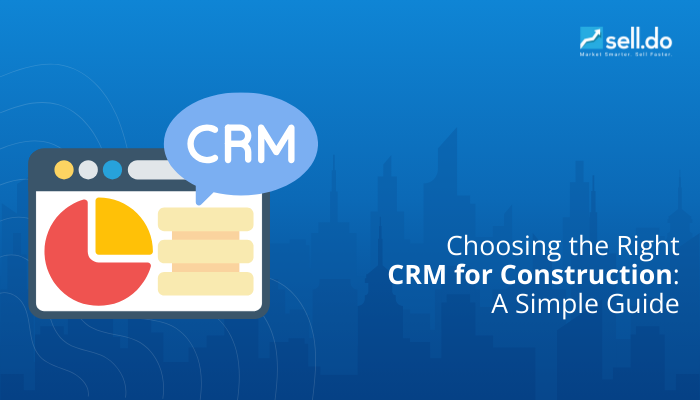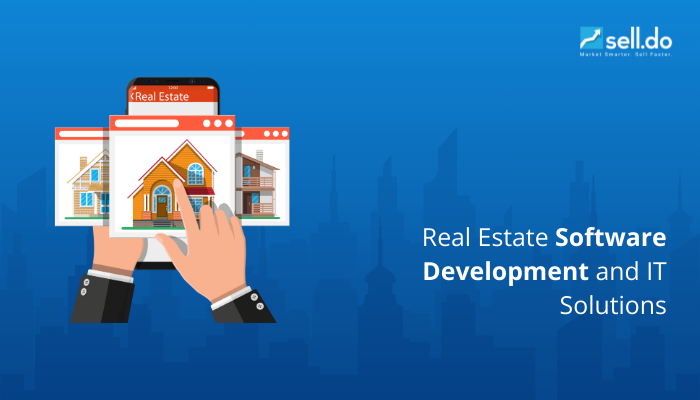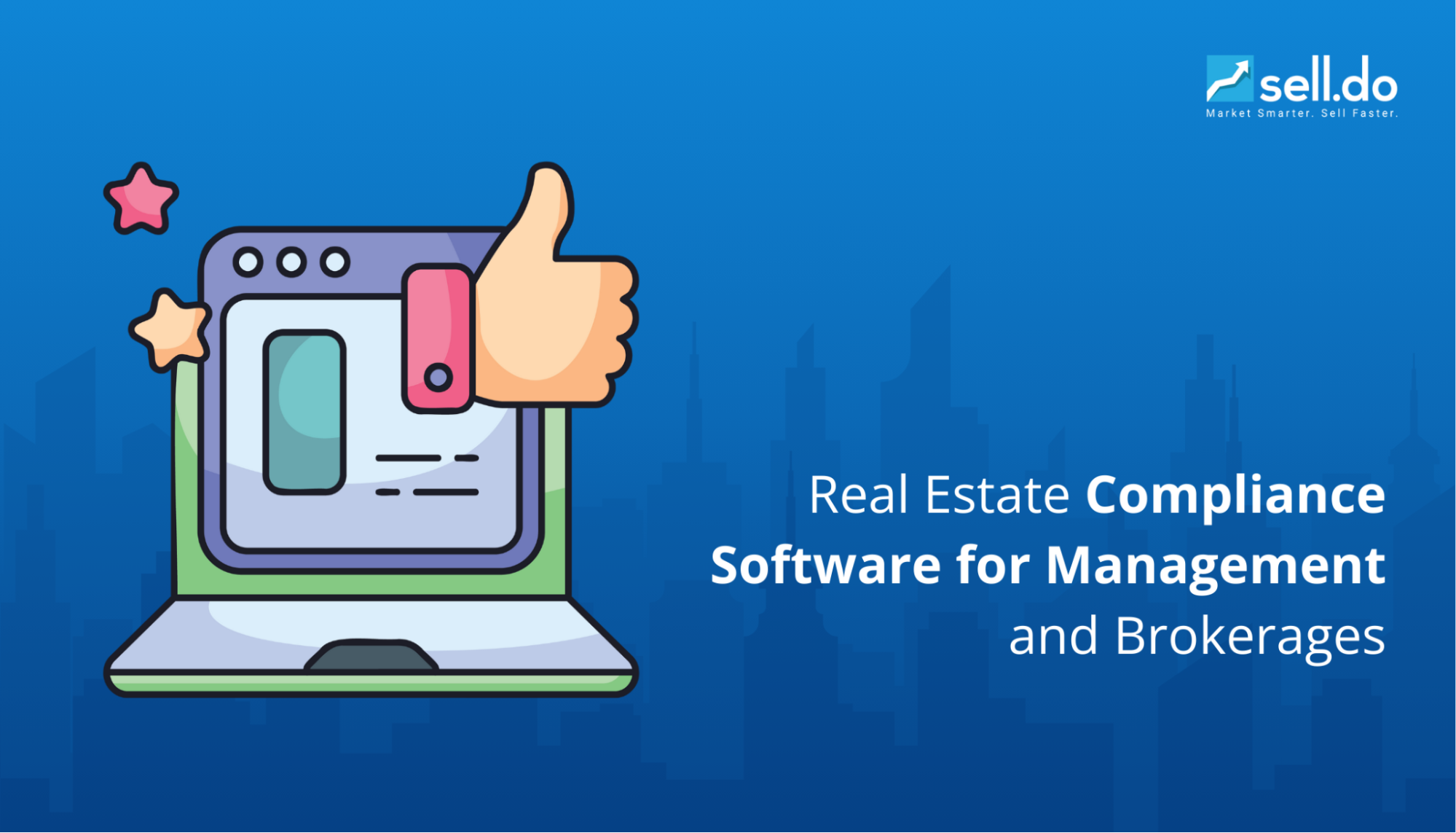Managing construction projects is no small feat. From juggling client communication to tracking project timelines and budgets, the workload can quickly spiral out of control. This is where a CRM (Customer Relationship Management) solution becomes your secret weapon. But what is CRM in construction, and why does it matter?
A CRM in construction helps businesses streamline processes like lead management, customer communication, and project tracking—all under one roof. According to industry studies, companies using CRM experience a 29% boost in sales productivity and a 34% increase in customer retention.
Finding the right construction CRM software can transform your construction business by turning challenges into opportunities. Let’s explore how to choose a solution that fits your needs perfectly.
What is CRM in Construction?
CRM system for construction refers to Customer Relationship Management software tailored to meet the unique needs of the construction industry. It helps businesses manage client relationships, streamline communication, and organize project data efficiently.
With features like lead tracking, project scheduling, and centralized data storage, a construction CRM ensures smooth operations and better customer satisfaction. It simplifies complex processes, helping construction firms improve productivity and build stronger client connections.
Now that we understand what CRM in construction is, let’s explore the key benefits it brings to construction businesses.
For a deeper understanding, check our blog, What Is CRM in Real Estate and Why Is It Important.
Key Benefits of Implementing a Construction CRM
Managing multiple projects, leads, and client interactions can get overwhelming for any construction business. A CRM for construction companies provides the tools you need to stay organized, boost efficiency, and enhance customer relationships. Below are the benefits it offers to developers, contractors, and construction firms.
- Streamlined Lead Management: Track leads effortlessly, prioritize prospects, and never miss a follow-up. A CRM for the construction industry keeps your sales pipeline organized and helps convert more inquiries into projects.
- Improved Communication: Maintain clear communication with clients, vendors, and team members. With features like automated reminders and omnichannel messaging, keeping everyone on the same page becomes hassle-free.
- Centralized Project Data: Store all project-related information in one place, from client details to timelines and budgets. This eliminates the need to juggle spreadsheets and reduces errors.
- Enhanced Collaboration: It allows teams to work seamlessly by sharing updates, tracking progress, and resolving issues faster. A CRM simplifies collaboration, even for teams working across different locations.
- Better Client Relationships: Deliver personalized experiences by tracking customer preferences, inquiries, and project history. Happy clients are more likely to bring repeat business and referrals.
- Time and Cost Savings: Automate repetitive tasks like follow-ups, invoicing, and reporting. This frees up your team to focus on more strategic goals, saving both time and money.
- Scalability: As your construction company grows, a CRM scales with your needs, ensuring you can handle more clients, projects, and data without missing a beat.
These benefits make a CRM system for construction companies an essential solution for efficiently managing projects, clients, and business growth.
If you’re looking for a B2B CRM solution, check our Complete Guide to B2B CRM - Benefits, Features, and Types to know more!
With a clear understanding of the benefits, it’s time to explore the different types of CRM systems available for construction businesses.
Types of CRM Systems for Construction

Selecting the right CRM software for the construction industry begins with understanding the various types of CRM systems available. Each type is tailored to meet specific needs, helping construction businesses manage client interactions, streamline operations, and make informed, data-driven decisions.
Collaborative CRM
A collaborative CRM focuses on improving communication and teamwork. It allows construction companies to connect better with clients, vendors, and internal teams by centralizing information like emails, messages, and customer histories. This is especially useful for projects involving multiple stakeholders or geographically dispersed teams.
Analytical CRM
Analytical CRMs are designed to turn data into actionable insights. By analyzing customer data, project trends, and sales metrics, this type of CRM helps construction companies make informed decisions. It’s ideal for businesses that want to forecast project demands, optimize resources, or identify new opportunities.
Operational CRM
Operational CRMs focus on automating day-to-day processes such as lead management, project scheduling, and customer follow-ups. They’re perfect for construction companies looking to enhance productivity by reducing manual tasks and ensuring smooth workflows from lead acquisition to project completion.
You can also check our blog on Best Real Estate CRM Software for Agents in India.
However, to fully leverage a CRM for your construction company, it's important to know which features can make a real difference in day-to-day operations. Let’s take a look at the key features of a construction CRM.
Essential Features of a Construction CRM
Below are the essential features of CRM software for the construction industry designed to streamline operations, enhance communication, and boost overall efficiency.
- Unified Data Source: A centralized repository that consolidates all client information, project details, and historical data, ensuring easy access and informed decision-making.
- Project Management Tools: Features to track bids, manage project timelines, assign tasks, and monitor progress for seamless project execution.
- Client Management at Scale: Tools to efficiently manage a growing client base while maintaining detailed interaction records to foster strong relationships.
- Data-Driven Analytics: Insights into sales pipelines, project performance, and client behavior to aid strategic planning and forecasting.
- Task Automation and Reminders: Automation of routine tasks such as follow-ups, scheduling, and data entry to improve productivity and reduce manual errors.
- Interdepartmental Collaboration: Tools that enable seamless communication among teams, ensuring cohesive project management.
- Mobile Accessibility: Access to CRM functionalities via mobile devices, allowing users to manage tasks and communicate effectively on the go.
- Integration with Other Tools: Compatibility with accounting software, email clients, and project management tools for a cohesive workflow.
- Customization Options: The ability to tailor the CRM to specific business needs, ensuring relevance and ease of use.
Implementing a CRM with these features can significantly enhance operational efficiency, improve client relationships, and provide a competitive edge in the construction industry.
Having outlined the essential features of a CRM, it’s time to explore the best CRM for the construction industry that can streamline operations and drive efficiency.
5 Best CRM for the Construction Industry
Having the best CRM for construction companies is essential for managing leads, improving customer relationships, and streamlining workflows. Below are the top tools tailored for construction businesses:
1. Sell.Do

Rating: 4.9/5
Sell.Do is a robust CRM system for construction and real estate businesses. Known for its powerful automation and insightful analytics, Sell.Do caters to developers, contractors, and brokers. It simplifies lead management, sales tracking, and customer engagement, helping you manage every aspect of your business on a single platform.
Key Features of Sell.Do
- Lead Management: Capture, track, and nurture lead from multiple channels.
- Sales Automation: Automate tasks like follow-ups, email campaigns, and lead scoring to improve conversion rates.
- Customer Insights: Generate detailed reports to analyze customer behavior and optimize sales strategies.
- Channel Partner Management: Collaborate efficiently with brokers and channel partners.
- Campaign Tracking: Monitor marketing performance to maximize ROI.
- Multilingual Support: Ensure accessibility for teams across different regions.
- Mobile App: Manage leads, tasks, and follow-ups anytime, anywhere.
Pricing: Sell.Do offers custom pricing plans according to your needs. You can get a demo here.
2. LeadSquared

Rating: 4.6/5
LeadSquared is a versatile CRM that helps construction businesses manage leads effectively while automating repetitive sales tasks. Its easy-to-use interface and robust features ensure that your sales team stays organized and focused on closing deals.
Key Features of LeadSquared
- Lead Capture Automation: Collect leads from multiple sources, including websites, social media, and property portals.
- Sales Workflow Automation: Streamline tasks like follow-ups, reminders, and email campaigns.
- Customizable Dashboards: Visualize important metrics and track team performance in real time.
- Lead Scoring: Prioritize high-potential leads to optimize conversion rates.
Pricing: LeadSquared offers two pricing plans as below:
- Sales Pro: $25/user/month
- Sales Super: $50/user/month
3. Zoho CRM

Rating: 4.1/5
Zoho CRM is an adaptable platform that enables you to tailor its features to your unique workflows. It offers a CRM for small construction businesses, allowing them to manage client relationships and automate tasks efficiently. Whether for small teams or large enterprises, Zoho provides a robust solution to streamline operations and boost productivity.
Key Features of Zoho CRM
- Contact and Lead Management: Keep all customer and project-related information in one place for easy access.
- Workflow Automation: Simplify approvals, follow-ups, and task assignments.
- Custom Modules: Create features specific to your business, like contractor tracking or site inspections.
- Integration Options: Connect with tools like email marketing software, payment gateways, and accounting platforms.
Pricing: Zoho CRM offers four plans as follows:
- Standard: $14/user/month
- Professional: $23/user/month
- Enterprise: $40/user/month
- Ultimate: $52/user/month
4. FollowUp CRM

Rating: 4.5/5
Followup CRM focuses on simplifying sales processes for construction businesses. It offers a clean interface and essential tools to ensure no opportunity slips through the cracks, making it an ideal CRM for the construction industry. This tool helps sales teams effectively manage multiple leads and streamline their follow-up processes.
Key Features of FollowUp CRM
- Customizable Follow-Up Sequences: Set up automated follow-up sequences for consistent client communication across multiple channels.
- Task Management and Reminders: Easily assign tasks and set reminders to ensure timely follow-ups and appointments.
- Lead Status Tracking: Track the current status of leads, ensuring every opportunity is followed up on at the right time.
- Integration with Communication Channels: Connect with email, phone, and messaging systems to streamline communication from within the CRM.
Pricing: FollowUp CRM offers three different plans with custom pricing.
5. Pipedrive CRM

Rating: 4.3/5
Pipedrive is a sales-focused CRM designed to streamline the sales pipeline for construction businesses. With its intuitive interface and powerful automation tools, Pipedrive is a great CRM for construction companies looking to boost sales performance and improve team collaboration.
Key Features of Pipedrive
- Sales Pipeline Management: Visualize and manage all stages of your sales process to close more deals.
- Lead and Deal Tracking: Track leads and deals in real-time, ensuring no opportunity is missed.
- Workflow Automation: Automate repetitive tasks like follow-ups, reminders, and emails to save time.
- Customizable Reporting: Generate detailed reports to analyze sales performance and refine strategies.
Pricing: Below are the pricing plans offered by Pipedrive:
- Essential: $12/seat/month
- Advanced: $24/seat/month
- Professional: $49/seat/month
- Power: $59/seat/month
- Enterprise: $79/seat/month
We have explored what is CRM in construction and the top tools you can choose from. But before you pick a tool, it is important to evaluate the platform to see if it fits your business needs.
Also, check our blog, Strategies to Generate Commercial Real Estate Leads.
Evaluating and Implementing a CRM Solution
Choosing and implementing the right CRM solution is crucial for enhancing the efficiency of your construction business. Here are the key steps to ensure a successful evaluation and integration:
- Trial and Evaluation Strategies: Test CRM features during free trials to assess their suitability for your needs. Involve key stakeholders to get feedback and evaluate how well the CRM aligns with your business processes.
- Integration and User Buy-In: Integrate the CRM in phases, starting with one department. Involve your team from the beginning, clearly communicating how the CRM will streamline workflows and improve productivity.
- Training and Support for Staff: Provide role-specific training and offer ongoing support through resources like help desks and tutorials to ensure smooth adoption and efficient use of the CRM.
- Data Migration and Cleanup: Cleanse your existing data to remove duplicates and inaccuracies, ensuring smooth data migration and accurate records in the new CRM system.
- Monitoring and Iteration: Track CRM performance through KPIs and user feedback. Continuously improve the system based on feedback and performance data to ensure long-term success.
By following these steps, you can ensure that your CRM solution is not only successfully implemented but also fully optimized for long-term success.
Conclusion
Knowing what CRM in construction is can transform your business. The right CRM simplifies operations, improves client communication, and offers valuable insights for long-term success. It boosts competitiveness and profitability by automating tasks and streamlining processes.
Among the top choices, Sell.Do stands out as an all-encompassing CRM for real estate and construction professionals. Its features, from lead management and sales automation to broker coordination and campaign analytics, make it a comprehensive solution to meet diverse business needs.
To explore Sell.Do, request here for a demo!






Leave a comment
Comments (0)
Be the first one to comment.